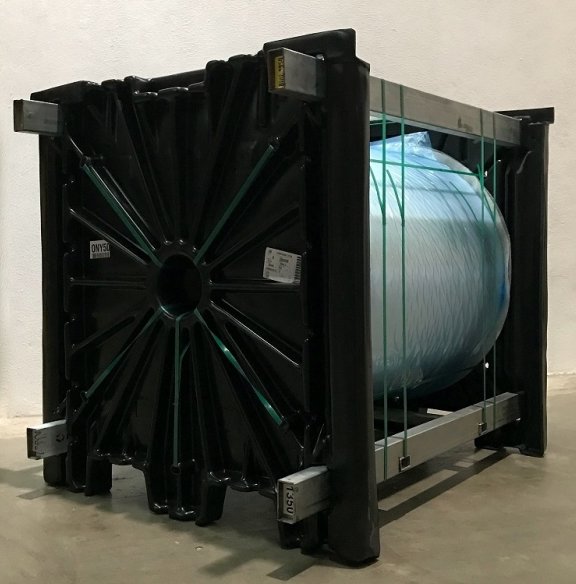
São Paulo, July 2018. Due to the demand of some clientes in Brazil, Terphane (www.terphane.com), leader in PET films in Latin America and one the biggest global players, had to study the logistics for sending the films to the clients. A major food customer indicated that traditional wooden pallets would no longer be accepted in their operation. The main reason is: to avoid risks of contamination of the factory and of products by insects, fungus etc. and other residues that could be “hidden” in the wood.
“After a thorough market research we discovered the solution in the form of a foldable, returnable, plastic rack, with a metal structure. The tests showed numerous advantages, but the main one is the maintenance of the integrity of the films we send to the clients. Stability and ability to stack also have a positive impact on logistics operations”, explains Edgar Malta, Supply Chain Manager.
For customers, the system earned more points by being totally clean – easy and guaranteed hygiene – and requiring minimal space in their factories. “These racks are in line with HACCP (Hazard Analysis Critical Control Point), which is particularly relevant in the food industry”, says Malta.
The operation itself has also proven to be quite simple: the delivered rack is taken off empty on the next delivery. Disassembling it is easy. But most fascinating is that the same rack can be reused 400 times, without any damage to its structure or compromise of its functionality. A logistical optimization solution and sustainable appeal: without cutting trees, with a guarantee of food safety and hygiene, and it is returnable.
“Terphane is the first company in Brazil to adopt a logistics solution of this caliber in the area of packaging films. A solution that helps reducing carbon footprint, contributing to the sustainable performance of the packaging value chain. The adoption of the system further reflects the understanding that customer needs must be met efficiently and, where possible, go beyond and add value to their product, brand and business as a whole”, adds the Manager.
It is well known that managing returnable packaging is a great business opportunity in the Supply Chain, especially because it is possible to share the benefits of an investment, making the entire system viable.
The model adopted by Terphane is aligned with the Brazilian Reverse Logistics police. A process of planning, implementing and controlling the flow of post-consumer waste – in this case, industrial consumption – and its return to the point of origin. “The whole process revolves around the recovery of value. By adopting this system, we are creating a new business management model that takes into account environmental and social impacts, as well as economic issues”, ends Edgar Malta.
